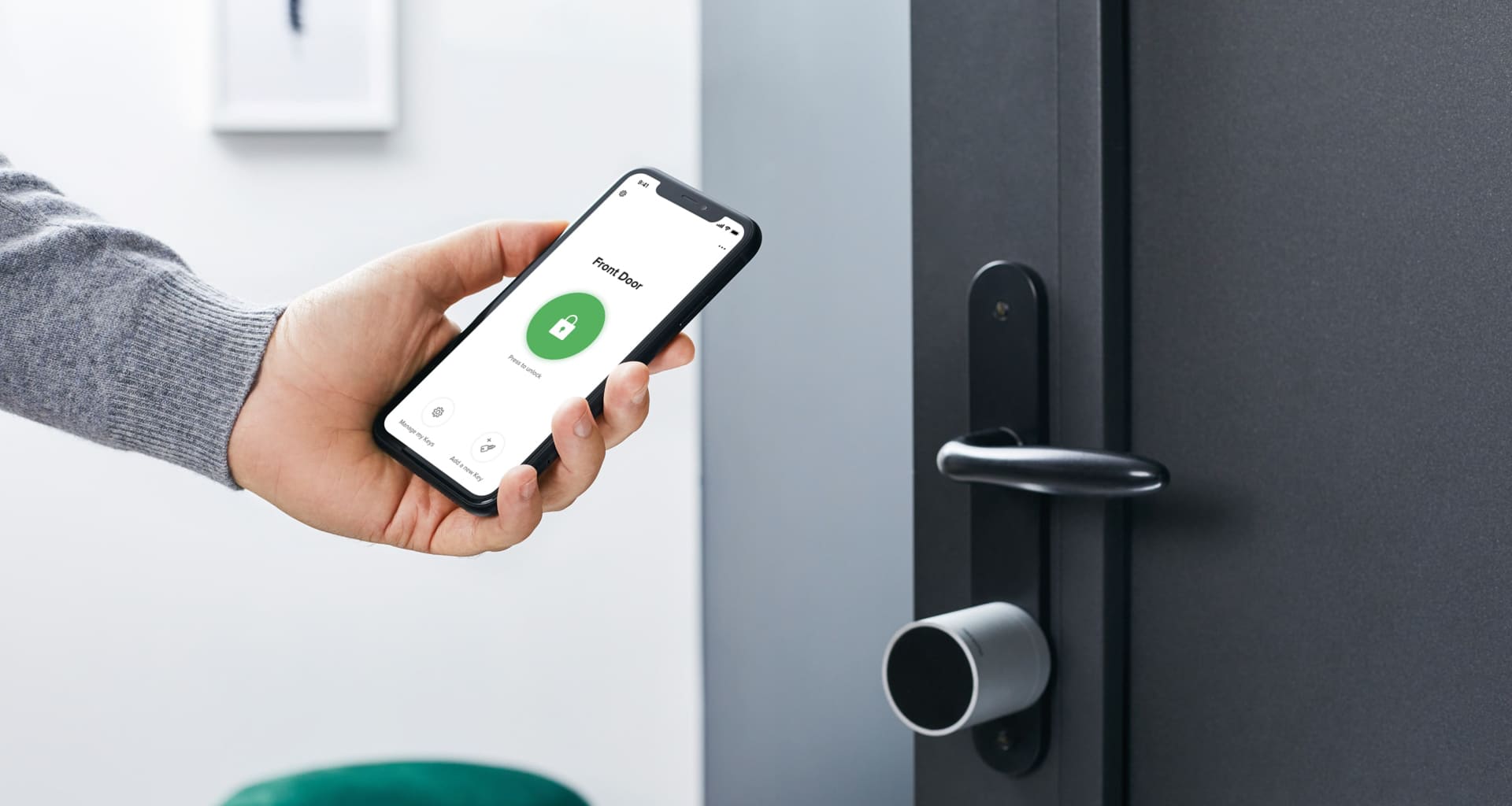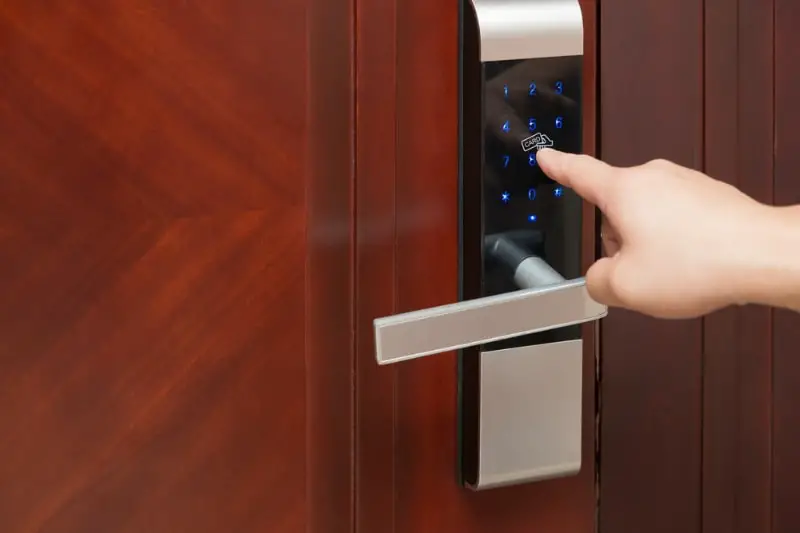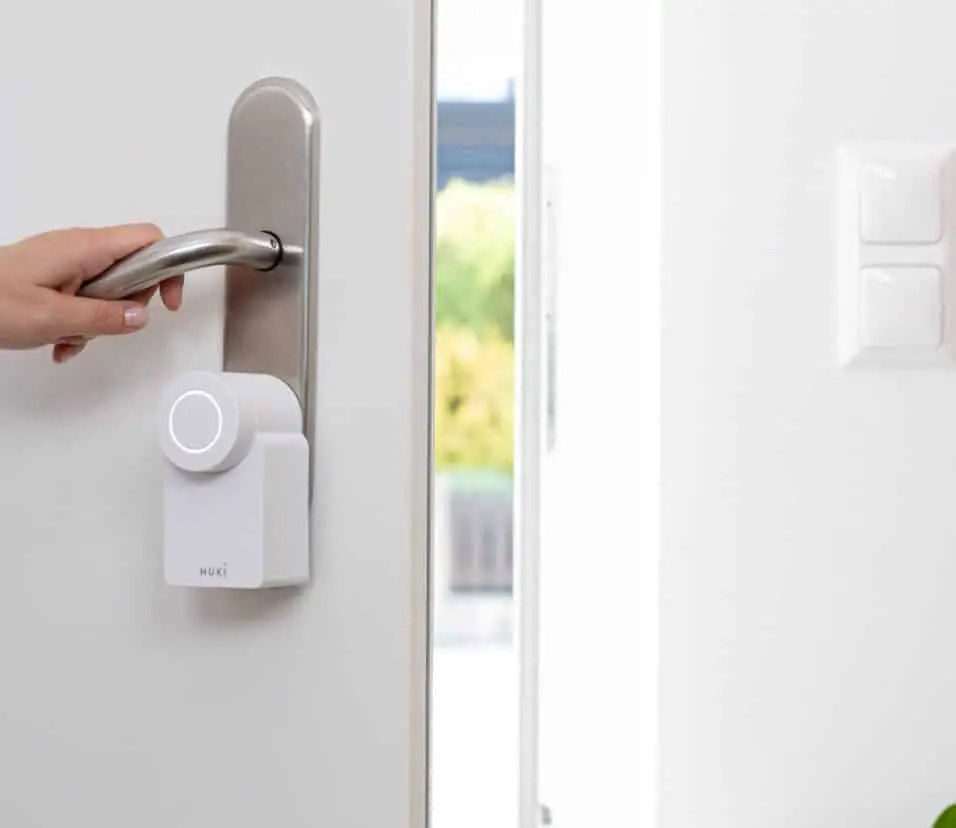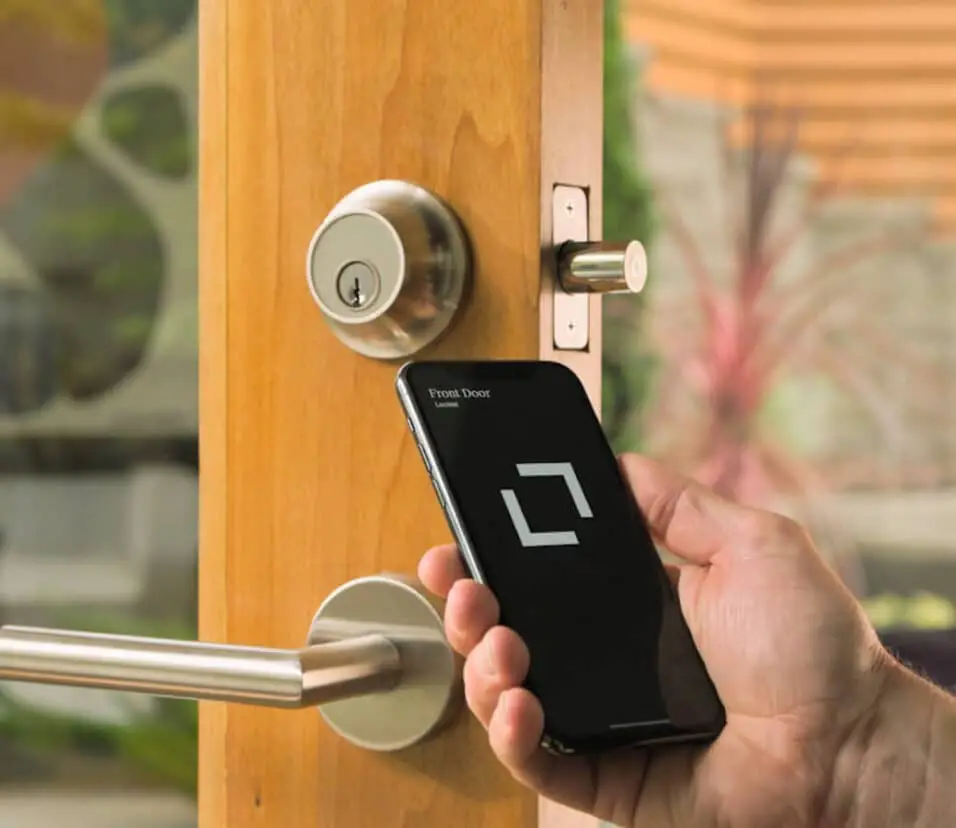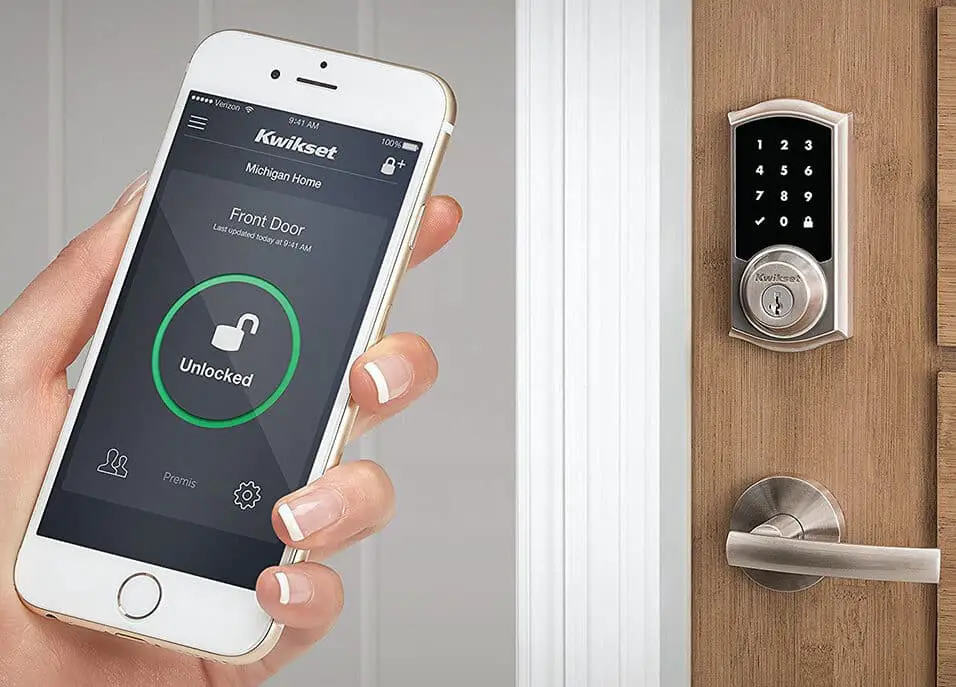Can Smart Door Locks Be Hacked
Introduction
Can Smart Door Locks Be Hacked: Smart door locks have become increasingly popular in recent years, offering convenience and enhanced security for homeowners. These innovative devices allow users to control access to their homes remotely, using a smartphone or other connected devices. However, as with any technology, concerns about the security of smart door locks have arisen. The question on many people’s minds is whether these locks can be hacked.
Smart door locks are designed to provide an extra layer of security for homes, but their vulnerability to hacking has raised doubts about their effectiveness. With the rise of the Internet of Things (IoT) and the increasing interconnectedness of devices, the potential for security breaches has become a pressing concern. Hackers are constantly evolving their techniques, and it is essential to understand the risks associated with smart door locks.
One of the primary concerns regarding smart locks is the possibility of unauthorized access. While traditional locks can be picked or keys can be duplicated, smart door locks introduce a new set of vulnerabilities. These locks rely on wireless communication protocols, such as Bluetooth or Wi-Fi, to connect with other devices. This connectivity opens up the possibility of hackers intercepting the communication and gaining access to the lock.
Another potential vulnerability lies in the software and firmware of smart door locks. Like any software, these locks are not immune to bugs or vulnerabilities that can be exploited by hackers. If a manufacturer fails to regularly update and patch their lock’s software, it could leave the device susceptible to hacking attempts. Additionally, if the user fails to change default passwords or uses weak passwords, it becomes easier for hackers to gain unauthorized access.
While the concerns surrounding smart door locks are valid, it is important to note that not all locks are created equal. Some manufacturers prioritize security and invest in robust encryption protocols and regular software updates to mitigate the risk of hacking. It is crucial for consumers to research and choose reputable brands that prioritize security and have a track record of addressing vulnerabilities promptly.
In this article, we will delve deeper into the potential vulnerabilities of smart door locks and explore the measures that can be taken to enhance their security. By understanding the risks and implementing best practices, homeowners can enjoy the convenience and peace of mind that smart door locks offer without compromising their safety.
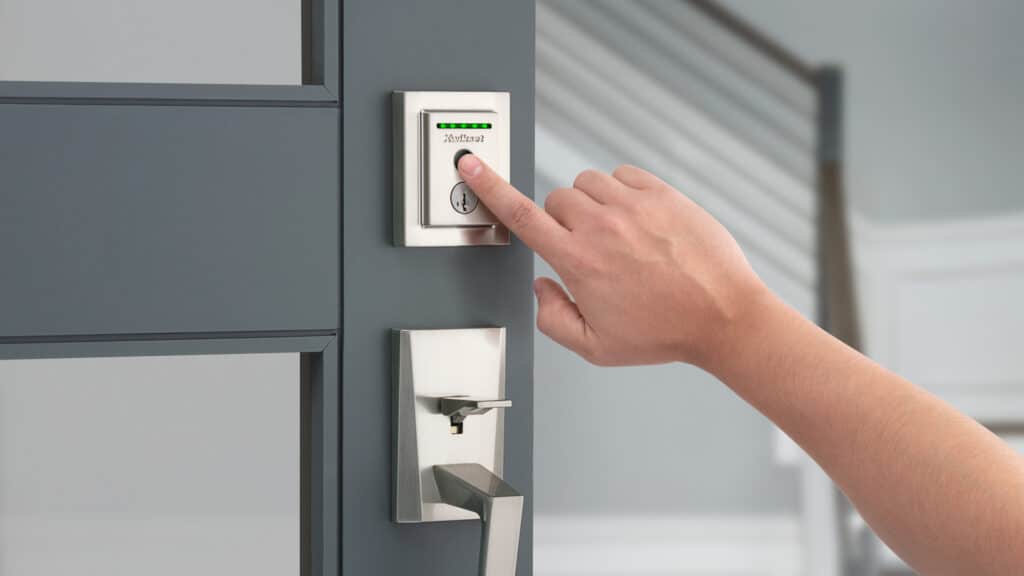
Are electronic door locks easy to hack?
Although smart locks are generally more secure than standard locks, they’re still vulnerable to hacking. This doesn’t mean that you need to get rid of them or trade them in for standard locks—it just means that you should implement greater security measures.
Introduction:
Electronic door locks have become increasingly popular in recent years due to their convenience and enhanced security features. However, concerns have been raised about the vulnerability of these locks to hacking attempts. In this article, we will explore the question of whether electronic door locks are easy to hack and discuss the factors that contribute to their security.
Factors affecting the security of electronic door locks:
Several factors play a crucial role in determining the vulnerability of electronic door locks to hacking. Firstly, the type of lock and its underlying technology can significantly impact its security. Some locks utilize basic radio frequency identification (RFID) technology, while others employ more advanced encryption methods. The level of encryption and authentication protocols implemented in the lock’s design can greatly enhance its resistance to hacking attempts.
Another important factor to consider is the manufacturer’s commitment to security. Reputable manufacturers invest in rigorous testing and employ security experts to identify and address potential vulnerabilities. They also release regular firmware updates to patch any discovered security flaws. It is crucial to choose a lock from a trusted manufacturer with a proven track record in producing secure electronic door locks.
Common hacking techniques:
Hackers employ various techniques to compromise electronic door locks. One common method is brute-forcing, where hackers attempt to guess the lock’s access code by systematically trying all possible combinations. This technique can be time-consuming but can be successful if the lock has a weak or easily guessable code.
Another technique is known as key spoofing, where hackers intercept and replicate the lock’s authentication signals to gain unauthorized access. This method requires sophisticated equipment and knowledge of the lock’s communication protocols. However, advancements in technology have made it increasingly difficult for hackers to successfully execute key spoofing attacks.
While electronic door locks are not entirely immune to hacking attempts, their security can be significantly enhanced through the use of advanced encryption methods, strong authentication protocols, and regular firmware updates. It is essential to choose a lock from a reputable manufacturer and follow best practices for securing electronic devices to minimize the risk of hacking. By taking these precautions, electronic door locks can provide a high level of security and convenience for homeowners and businesses alike.
Are smart locks a bad idea?
A smart lock is vulnerable by way of your phone. Since your phone is the key, if someone is able to access your phone, they not only have access to personal information such as your text messages, and emails, but also an open door to your whole house.
Introduction:
Smart locks have gained popularity in recent years as a convenient and innovative solution for home security. These locks use advanced technology to provide homeowners with the ability to control access to their homes remotely. However, there has been ongoing debate about whether smart locks are a good idea or if they pose potential risks. In this article, we will explore the advantages and disadvantages of smart locks to determine if they are a bad idea or not.
Advantages of Smart Locks:
One of the main advantages of smart locks is the convenience they offer. With a smart lock, homeowners no longer need to carry around traditional keys or worry about losing them. Instead, they can use their smartphones or other connected devices to lock and unlock their doors. This eliminates the need for physical keys and provides a more streamlined and hassle-free experience.
Another advantage of smart locks is the ability to grant temporary access to others. For example, if you have guests staying at your home or need to let a service provider in while you are away, you can easily provide them with temporary access codes. This eliminates the need to make copies of keys or be physically present to let someone in. Additionally, you can track who enters and exits your home by reviewing the access logs provided by the smart lock.
Disadvantages of Smart Locks:
Despite their convenience, smart locks do come with some potential disadvantages. One major concern is the vulnerability to hacking. As smart locks rely on wireless communication and internet connectivity, they can be susceptible to cyber attacks. If a hacker gains access to your smart lock, they could potentially unlock your door without your knowledge or even disable the lock altogether. This raises concerns about the overall security of smart locks and the potential risks they pose.
Another disadvantage of smart locks is the reliance on technology. While technology has undoubtedly made our lives easier in many ways, it is not without its flaws. Smart locks can experience technical glitches or malfunctions, which could leave homeowners locked out of their own homes. Additionally, power outages or internet connectivity issues can render smart locks temporarily useless, leaving homeowners unable to access their homes until the issues are resolved.
Smart locks offer numerous advantages in terms of convenience and flexibility. However, they also come with potential risks and disadvantages, such as vulnerability to hacking and reliance on technology. It is important for homeowners to carefully consider their individual needs and concerns before deciding whether smart locks are a good idea for their homes. By weighing the pros and cons, homeowners can make an informed decision about whether to embrace this innovative technology or stick with traditional locks.
Can keypad locks be hacked?
Can keypad locks be hacked? Keypad locks can be hacked if the wireless network they are working over has not been set up and secured correctly. Keypad locks that do not use any wireless signals cannot be hacked but are generally not a lot safer than standard locks as an experienced locksmith can pick them.
Can keypad locks be hacked?
Keypad locks have become increasingly popular in recent years due to their convenience and enhanced security features. However, like any technology, they are not completely immune to hacking attempts. While keypad locks are generally considered to be more secure than traditional key locks, it is important to understand the potential vulnerabilities they may have.
One of the main concerns with keypad locks is the possibility of brute force attacks. These attacks involve systematically trying every possible combination until the correct one is found. While modern keypad locks often have built-in mechanisms to prevent this type of attack, it is still a potential vulnerability that hackers may exploit.
Another potential vulnerability is the interception of wireless signals. Some keypad locks use wireless communication protocols, such as Bluetooth or Wi-Fi, to connect with other devices. If these signals are not properly encrypted or secured, hackers may be able to intercept them and gain unauthorized access to the lock.
Additionally, keypad locks can be susceptible to physical attacks. For example, hackers may attempt to bypass the lock by tampering with its components or using specialized tools to manipulate the keypad. This highlights the importance of choosing a high-quality keypad lock that is resistant to physical tampering.
It is worth noting that while keypad locks can be hacked, the likelihood of a successful attack depends on various factors, including the specific model of the lock and the skills and resources of the hacker. By choosing a reputable brand, regularly updating firmware, and following best practices for securing keypad locks, the risk of hacking can be significantly reduced.
What is the most secure type of lock?
Deadbolt door locks are the most secure type of key lock and are commonly used on exterior house doors. Single and double cylinder locks are classified by strength from Grade 1 to Grade 3. Grade 1 is the highest and provides the best security.
Introduction:
When it comes to ensuring the security of our belongings, locks play a crucial role. With a wide range of lock types available in the market, it can be challenging to determine which one offers the highest level of security. However, by considering various factors such as design, technology, and resistance to tampering, we can identify the most secure type of lock.
Paragraph 1:
One of the most secure types of locks is the deadbolt lock. Unlike spring bolt locks, which can be easily manipulated with a credit card or similar tools, deadbolt locks provide enhanced security. These locks consist of a solid metal bolt that extends into the door frame, making it difficult for intruders to force their way in. Deadbolt locks are available in single-cylinder and double-cylinder variants. Single-cylinder deadbolts can be operated from the inside with a thumb turn, while double-cylinder deadbolts require a key for both sides, offering additional security against break-ins.
Paragraph 2:
Another highly secure type of lock is the smart lock. These locks utilize advanced technology, such as biometric authentication or smartphone connectivity, to provide an extra layer of security. Smart locks can be programmed to recognize authorized individuals through fingerprint scanning or facial recognition, ensuring that only approved individuals can gain access. Additionally, some smart locks offer features like remote locking and unlocking, allowing homeowners to monitor and control access to their property from anywhere in the world.
Paragraph 3:
In high-security environments, such as banks or government facilities, electromechanical locks are often employed. These locks combine mechanical strength with electronic features, making them highly resistant to tampering. Electromechanical locks typically require a valid access card or PIN code to unlock, and they can also be integrated with security systems to provide real-time monitoring and logging of access attempts. The combination of physical strength and advanced technology makes electromechanical locks an excellent choice for applications where utmost security is required.
Paragraph 4:
Finally, for securing valuable items such as jewelry or important documents, a safe lock is essential. Safe locks are designed to withstand various forms of attacks, including drilling, cutting, or manipulation. These locks often incorporate multiple locking mechanisms, such as combination locks, key locks, or biometric locks, to provide maximum security. Additionally, safes are constructed with heavy-duty materials like steel and are often fire-resistant, ensuring the protection of valuable items even in extreme circumstances.
The most secure type of lock depends on the specific requirements and level of security needed. Deadbolt locks, smart locks, electromechanical locks, and safe locks are all excellent options for enhancing security. By considering factors such as strength, technology, and resistance to tampering, individuals and organizations can choose the most suitable lock type to protect their belongings effectively.
Why should I buy a smart door lock?
Removing the need for physical keys, which can be easily lost or forgotten, smart locks secure your home with a digital cryptographic key code. This technology can even unlock the door for you when it senses you’re close to home by setting up a perimeter around your property—a feature called geofencing.
Introduction:
A smart door lock is a technologically advanced security device that offers numerous benefits and convenience to homeowners. With the increasing popularity of smart home technology, smart door locks have become a popular choice for individuals looking to enhance the security of their homes. This article will explore the reasons why investing in a smart door lock is a wise decision.
Enhanced Security:
One of the primary reasons to buy a smart door lock is the enhanced security it provides. Traditional locks can be easily picked or tampered with, making them vulnerable to break-ins. In contrast, smart door locks utilize advanced encryption and authentication methods, making them significantly more secure. These locks often have features such as fingerprint recognition, keypad entry, or even facial recognition, ensuring that only authorized individuals can access your home.
Convenience and Accessibility:
Smart door locks offer unparalleled convenience and accessibility. With a smart lock, you no longer need to carry around a physical key or worry about losing it. Instead, you can use your smartphone or a key fob to unlock your door effortlessly. This is particularly useful when you have your hands full or when you need to grant access to someone while you are away. Additionally, some smart locks can be integrated with virtual assistants like Amazon Alexa or Google Assistant, allowing you to control your lock with voice commands.
Remote Monitoring and Control:
Another advantage of smart door locks is the ability to remotely monitor and control your lock. Many smart locks come with accompanying mobile apps that allow you to lock or unlock your door from anywhere in the world. This feature is especially beneficial when you need to let someone into your home while you are away or when you forget to lock your door. Additionally, some smart locks offer activity logs, providing you with a record of who entered or exited your home and at what time.
Integration with Smart Home Systems:
Smart door locks can seamlessly integrate with other smart home devices and systems, further enhancing your home’s security and automation. For example, you can connect your smart lock to your home security system, enabling it to automatically lock when the system is armed. You can also integrate it with your smart lights, allowing the lights to turn on automatically when you unlock the door. This integration creates a more comprehensive and efficient smart home ecosystem.
Investing in a smart door lock offers numerous advantages, including enhanced security, convenience, remote monitoring, and integration with other smart home devices. With their advanced features and ease of use, smart door locks are becoming an increasingly popular choice for homeowners seeking to upgrade their home security systems.
Smart door locks, like any other connected device, are vulnerable to hacking due to various potential vulnerabilities. One major vulnerability is weak or easily guessable passwords. Many users tend to set simple passwords or use default ones, making it easier for hackers to gain unauthorized access. Additionally, some smart door locks may have security flaws in their firmware or software, which can be exploited by hackers.
Another vulnerability is the lack of encryption in communication between the smart lock and the connected devices. If the communication is not properly encrypted, hackers can intercept and manipulate the data, potentially gaining control over the lock. Furthermore, some smart door locks may have weak authentication mechanisms, allowing hackers to bypass the authentication process and gain entry.
To make matters worse, smart door locks can also be vulnerable to physical attacks. Hackers can tamper with the lock’s hardware or use specialized tools to bypass the lock mechanism, granting them unauthorized access without leaving any digital traces.
The potential vulnerabilities of smart door locks include weak passwords, security flaws in firmware or software, lack of encryption in communication, weak authentication mechanisms, and susceptibility to physical attacks. It is crucial for manufacturers and users to address these vulnerabilities to ensure the security of smart door locks.
How can hackers exploit these vulnerabilities to gain unauthorized access to smart door locks?
Hackers can exploit vulnerabilities in smart door locks through various methods to gain unauthorized access. One common method is through brute force attacks, where hackers use automated software to systematically try different combinations of passwords or PIN codes until they find the correct one. This can be particularly effective if the smart door lock has weak or easily guessable default passwords.
Another way hackers can exploit vulnerabilities is through the use of software vulnerabilities or bugs in the smart door lock’s firmware. By exploiting these weaknesses, hackers can gain control over the lock’s functions and bypass any security measures in place. This can allow them to unlock the door remotely or manipulate the lock’s settings without the owner’s knowledge or authorization.
Additionally, hackers can also exploit vulnerabilities in the communication protocols used by smart door locks. If the communication between the lock and the connected devices or the cloud server is not properly secured, hackers can intercept and manipulate the data exchanged. This can enable them to gain unauthorized access to the lock or even impersonate legitimate users to control the lock remotely.
What security measures can be implemented to protect smart door locks from being hacked?
When it comes to protecting smart door locks from being hacked, several security measures can be implemented to enhance their resilience against unauthorized access. Firstly, it is crucial to ensure that the smart door lock is equipped with strong encryption protocols. This means using advanced encryption algorithms, such as AES (Advanced Encryption Standard), to secure the communication between the lock and the connected devices.
Additionally, implementing two-factor authentication (2FA) can significantly enhance the security of smart door locks. By requiring users to provide two forms of identification, such as a password and a unique code sent to their mobile device, the likelihood of unauthorized access is greatly reduced. This adds an extra layer of protection, making it more difficult for hackers to gain control of the lock.
Furthermore, regular software updates are essential for maintaining the security of smart door locks. Manufacturers should promptly release patches and updates to address any identified vulnerabilities or weaknesses. Users should ensure that they regularly check for and install these updates to keep their smart door locks protected against the latest hacking techniques.
Are there any reported cases of smart door locks being successfully hacked? If so, what were the consequences?
Yes, there have been reported cases of smart door locks being successfully hacked, highlighting the potential vulnerabilities in these devices. One notable case involved a popular smart door lock brand that was found to have a security flaw, allowing hackers to remotely unlock the door without any authentication. This vulnerability was exploited by hackers who gained unauthorized access to homes, leading to instances of theft and burglary.
Another reported case involved a smart door lock that had a weak encryption mechanism, making it susceptible to brute force attacks. Hackers were able to decipher the lock’s encryption and gain unauthorized access to homes, compromising the security and safety of the residents.
These reported cases emphasize the importance of addressing the vulnerabilities in smart door locks to prevent unauthorized access. Manufacturers need to prioritize robust security measures, such as implementing strong encryption protocols, regularly updating firmware to patch any identified vulnerabilities, and conducting thorough security audits. Additionally, users should ensure they are using unique and strong passwords for their smart door locks, enable two-factor authentication if available, and regularly check for firmware updates to stay protected against potential hacking attempts.
What steps can individuals take to ensure the security of their smart door locks and minimize the risk of hacking?
Ensuring the security of smart door locks is crucial to protect against potential hacking attempts. Individuals can take several steps to minimize the risk of unauthorized access and enhance the overall security of their smart door locks.
1. Regularly update firmware: It is essential to keep the smart door lock’s firmware up to date. Manufacturers often release firmware updates to address security vulnerabilities and enhance the device’s overall performance. By regularly updating the firmware, individuals can ensure that their smart door lock is equipped with the latest security patches.
2. Use strong and unique passwords: Setting a strong and unique password for the smart door lock is vital. Avoid using common or easily guessable passwords. Instead, create a complex password that includes a combination of uppercase and lowercase letters, numbers, and special characters. Additionally, it is crucial to use different passwords for each smart device to prevent a single compromised password from affecting multiple devices.
3. Enable two-factor authentication: Two-factor authentication adds an extra layer of security to smart door locks. By enabling this feature, individuals will need to provide an additional verification method, such as a fingerprint scan or a unique code sent to their mobile device, to gain access to the lock. This significantly reduces the risk of unauthorized access even if the password is compromised.
4. Secure the home network: Smart door locks are connected to the home network, making it essential to secure the network itself. Individuals should ensure that their Wi-Fi network is password protected and uses strong encryption. Additionally, they can consider setting up a separate guest network for smart devices to isolate them from personal devices and sensitive information.
5. Regularly monitor and review access logs: Many smart door locks provide access logs that allow individuals to monitor who has accessed the lock and when. Regularly reviewing these logs can help identify any suspicious activity and take appropriate action if necessary. It is also advisable to disable or remove any unnecessary user accounts to minimize the potential attack surface.
By following these steps, individuals can significantly enhance the security of their smart door locks and minimize the risk of hacking. It is crucial to stay vigilant and proactive in implementing security measures to protect against potential vulnerabilities.
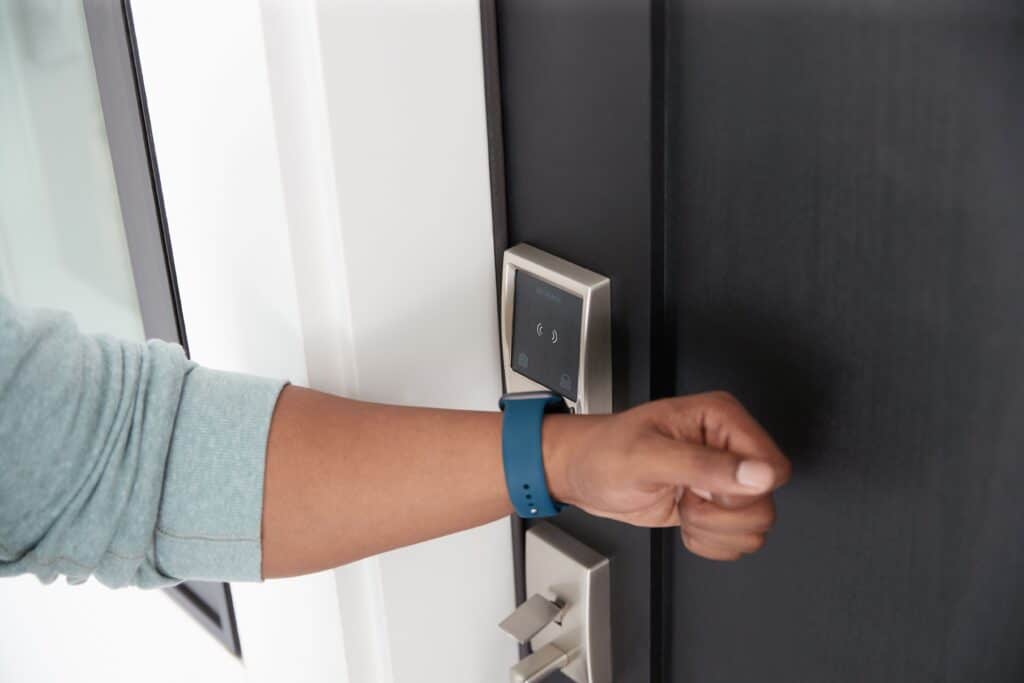
Conclusion
The question of whether smart door locks can be hacked is a complex one that requires careful consideration. While it is true that no system is completely immune to hacking, the advancements in technology and security measures have made smart door locks increasingly secure. However, it is important for users to remain vigilant and take necessary precautions to minimize the risk of hacking.
One of the key factors to consider is the quality and reliability of the smart door lock system. Investing in a reputable brand that has a proven track record of security can significantly reduce the chances of hacking. Additionally, regularly updating the firmware and software of the smart lock is crucial, as manufacturers often release patches and updates to address any vulnerabilities that may be discovered.
Furthermore, users should also ensure that their home network is secure. This includes using strong and unique passwords for their Wi-Fi network, enabling encryption, and regularly changing passwords. It is also advisable to set up a separate network for smart devices to further isolate them from potential threats.
Lastly, practicing good cybersecurity habits is essential in protecting smart door locks from hacking. This includes being cautious of phishing attempts, not clicking on suspicious links or downloading unknown apps, and being mindful of who has access to the smart lock system. By following these best practices, users can significantly reduce the risk of their smart door locks being hacked.
While no system can guarantee 100% protection against hacking, smart door locks have become increasingly secure with advancements in technology and security measures. By investing in reputable brands, regularly updating firmware and software, securing home networks, and practicing good cybersecurity habits, users can minimize the risk of their smart door locks being hacked. As technology continues to evolve, it is important for users to stay informed about the latest security measures and adapt accordingly to ensure the safety and security of their homes.



